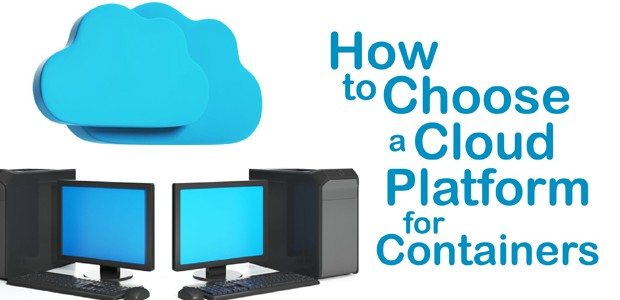Cloud platforms became more or less commoditized pretty quickly. Sure, they each have their pros and cons, but the major cloud providers all do about the same thing in about the same way. The container trend is disrupting that status quo a bit, though, and giving cloud platforms a new way to separate from the pack. Here is what you should look for in choosing a cloud provider to host your containers.
Cloud services have been a major battleground for Amazon, Google, and Microsoft for years now. Leveraging cloud platforms has already become commoditized to some extent, though, to the point that there wasn’t much in the way of defining characteristics that make one vendor or cloud platform significantly better than another. The advent of microservices and container platforms, however, has emerged as a differentiator that cloud providers can use to compete.
A few years ago containers were barely a blip in the radar. Docker changed that and transformed the face of IT in the process. As Docker gained momentum, software vendors and cloud platforms scrambled to integrate support for the popular container platform. It didn’t take long to get to the point where Docker support became table stakes for even being in the game, and it was just expected that any cloud provider would support Docker containers.
Now, that initial wave of Docker-specific support has shifted to a broader container-agnostic focus and a drive to be better at providing scalability, redundancy, interoperability, and security better than rival cloud platforms. Amazon, Google, and Microsoft each have their own unique approach to addressing these cloud container concerns as they battle each other for supremacy.
Scalability
Scalability is one of the hallmarks of cloud platforms in general. The ability to add virtual servers and cloud storage capacity at the push of a button is one of the driving factors that led many organizations to move to the cloud in the first place. With DevOps and microservices, though, organizations need scalability on steroids—with an ability to both increase or decrease the available resources exponentially in an instant. What’s important to consider when looking at Amazon, Google, Microsoft, or other cloud platforms isn’t just whether or not they can scale—but how the scaling is accomplished. You need to ensure that the processes you’re running and the container images required scale, and not just virtual server capacity.
Redundancy
Again, this is one of the primary value propositions of the cloud in general. A company maintaining a local data center is exposed to more risk and more single points of failure. If something happens to the data center, business stops. A cloud provider typically has multiple data centers spanning diverse geographic regions across the country and around the world to ensure that operations continue even if one site experiences a disruption of service. That redundancy is equally important from a microservices / container perspective.
Read the full post on ContainerJournal: How To Choose a Cloud Platform for Containers.
- Building Trust into the Cybersecurity Gig Economy - February 5, 2026
- Why Identity Is the Key to AI-Driven Defense - January 30, 2026
- Zero Trust, Real Talk: A Conversation with Dr. Chase Cunningham - January 21, 2026



